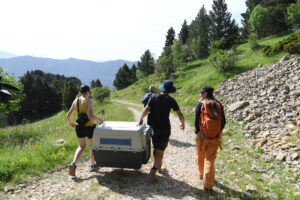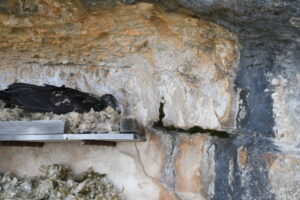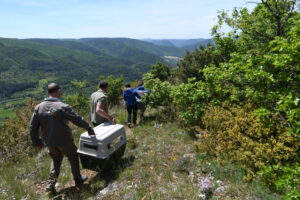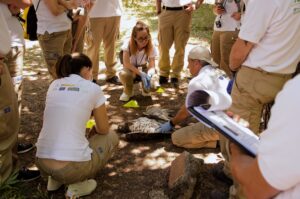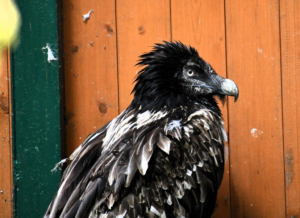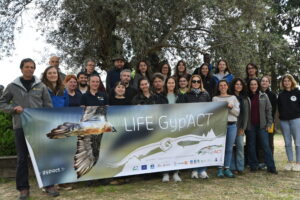LIFE gyp'act
Restoring the Bearded Vulture metapopulation between the Alps and the Pyrenees
- Página inicial
- Páginas
- Projects
- LIFE Gyp’Act

| Initiative period | 1 December 2022 to 30 November 2028 |
|---|---|
| Initiative area | French Pre-Alps and the Massif Central |
| Target species | Bearded Vulture |
The Bearded Vulture (Gypaetus barbatus), once a common sight across the mountains of southern Europe, now faces significant challenges due to changes in farming practices, a decrease in wild herbivores, and human persecution. In France, the species is endangered, with an estimated 70 pairs. However, conservation efforts, particularly through the LIFE GypConnect project, have yielded promising results, including the establishment of six new pairs in South-Eastern France.
Building on the success of LIFE GypConnect, the LIFE Gyp’Act project aims to further consolidate the Bearded Vulture population in the region, ensuring connectivity between the Pyrenean and Alpine populations. Running until November 2028, LIFE Gyp’Act seeks to reintroduce 60 Bearded Vultures to key areas, mitigate primary threats, and improve food availability. The project leverages decades of expertise in captive breeding and strong regional partnerships to achieve these goals. By engaging local communities and stakeholders, LIFE Gyp’Act aims to create a sustainable environment where Bearded Vultures can thrive, contributing to the overall biodiversity and ecological health of the region.
LEARN MORE ABOUT THE TARGET SPECIES
With funding from the European Union’s LIFE programme, the LIFE Gyp’Act project team will implement reintroduction, monitoring, threat mitigation, food provision, and public awareness initiatives to restore Bearded Vulture populations in South-eastern France.
RELEASING YOUNG BEARDED VULTURES
The project will reintroduce 60 captive-bred Bearded Vultures to Parc national des Cévennes, Parc naturel régional des Grands Causses, Parc naturel régional des Baronnies provençales, and Parc Naturel Régional du Vercors. Utilizing the ‘hacking method,’ young vultures will be placed in artificial nests to acclimatize before their first flights. Equipped with lightweight GPS transmitters, their movements will be tracked to monitor their adaptation and identify potential threats. An important action to help establish a self-sustaining population that connects the Alpine and Pyrenean groups.
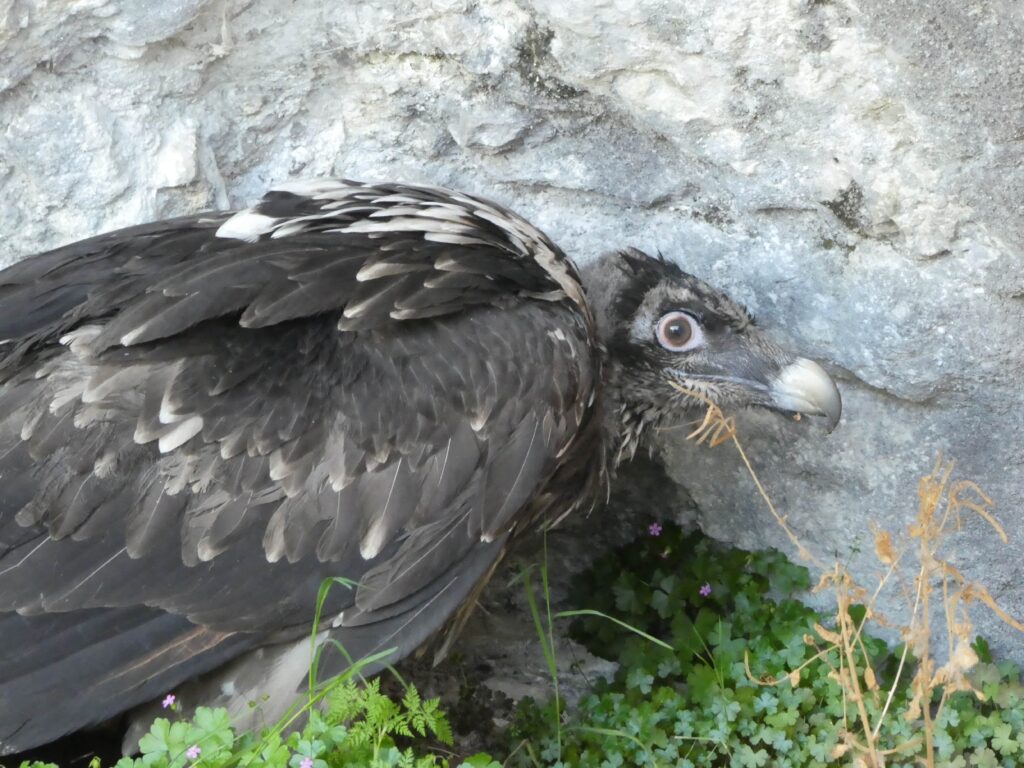
MONITORING BEARDED VULTURES
Monitoring efforts will involve tracking the reintroduced vultures using GPS transmitters to gather real-time data on their movements and behaviour. This data will help identify and analyze threats, ensuring timely interventions. By gaining comprehensive insights into the vultures’ dispersal patterns and habitat use, it can facilitate better conservation strategies and adaptive management practices to support the growing population.

TACKLING THREATS
To mitigate threats, the project will insulate and secure 20 km of power lines, implement measures to understand and prevent wind turbine collisions, promote lead-free ammunition among hunters, and mobilize an anti-poison dog unit. Awareness campaigns will educate farmers on the dangers of illegal poison baits. The objective is to create a safer environment, reducing mortality from electrocution, poisoning, and collisions, thus enhancing the survival prospects of Bearded Vultures.

IMPROVING FOOD AVAILABILITY
To ensure a stable food supply for Bearded Vultures, the project will maintain 20 feeding stations across South-eastern France. These stations will be stocked with food sourced from local abattoirs and butchers. By providing reliable feeding opportunities, the project aims to support the health and reproductive success of the reintroduced population, encouraging their movement between the Alps and the Pyrenees and reducing the risk of food scarcity-related mortality.
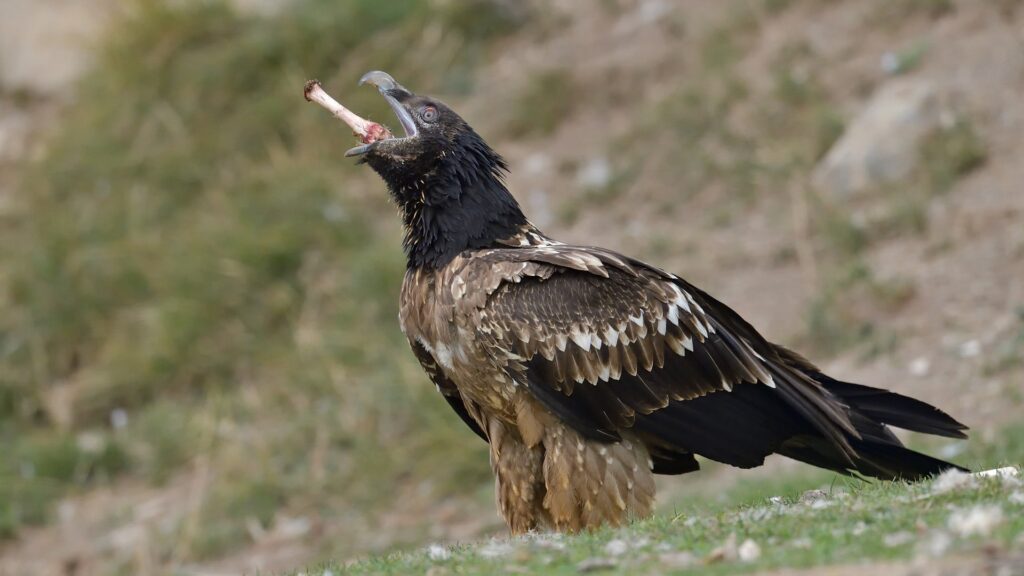
Project partners are LPO – Ligue pour la Protection des Oiseaux as coordinator beneficiary, and the Vulture Conservation Foundation, Association Vautours en Baronnies, LPO Auvergne-Rhone-Alpes, LPO Occitanie, Sorbonne Université, ENEDIS, Centre National d’Informations Toxicologiques Vétérinaires, Parc National des Cévennes e Parc Naturel Régional du Vercors as associated beneficiaries.
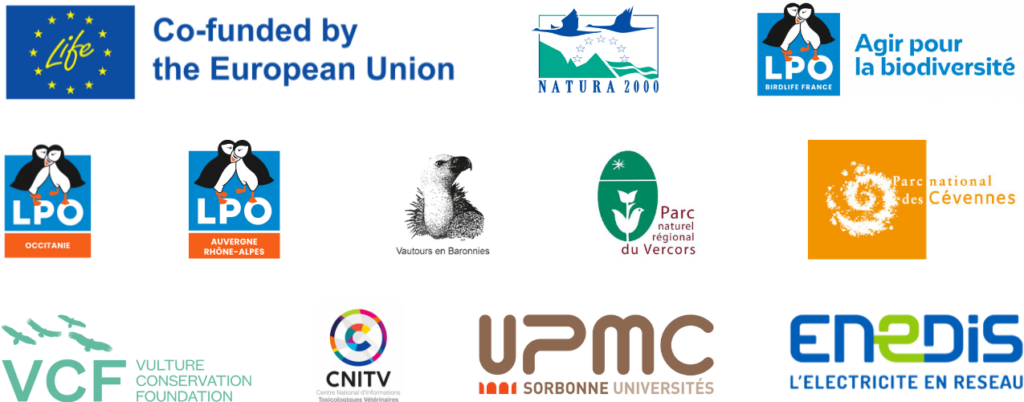
The LIFE Gyp’Act project (LIFE21-NAT-FR-LIFE-GYPACT/101074131) is co-financed by the LIFE Programme of the European Union. The project duration is 6 years, from December 2022 to November 2028. The total budget is €13,465,098, with the European Union contributing €10,074,748.
The opinions expressed in the news are those of the author only and do not necessarily reflect those of the European Union or CINEA. Neither the European Union nor the grant provider can be held responsible for them.
Latest project news
Two feathered newcomers are spreading their wings in the French...Read More
There’s a new vulture in town! Meet Univers, the latest...Read More
This year marks the thirteenth consecutive year of Bearded Vulture...Read More
As the LIFE Gyp’Act project celebrates two years of action...Read More
It is with deep sorrow that we share the news...Read More
On April 22–23, 25 wildlife professionals gathered at the Vallcalent...Read More
By the end of 20th century, Europe’s vultures were nearly...Read More
On 16 August 2024, a group of passionate young conservationists...Read More
The famous adventurer, a Bearded Vulture called Rei del Causse,...Read More

